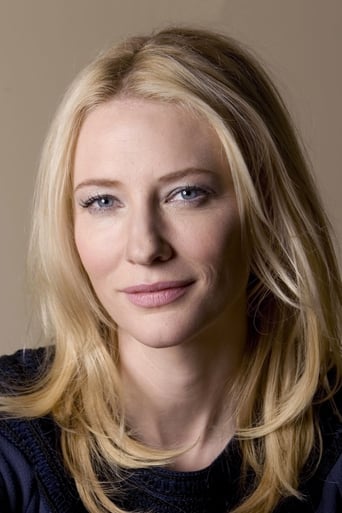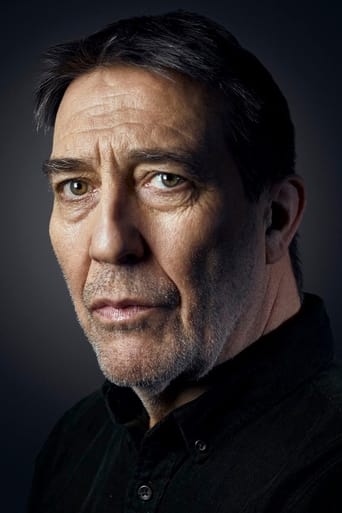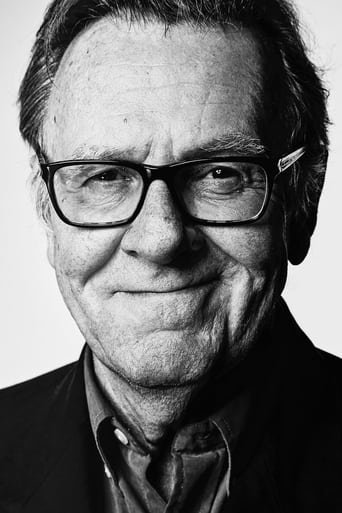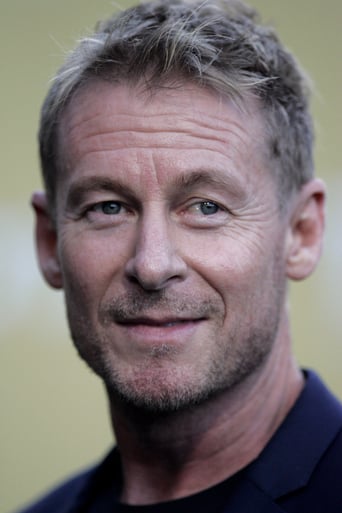IslandGuru
Who payed the critics
Develiker
terrible... so disappointed.
Claysaba
Excellent, Without a doubt!!
Dynamixor
The performances transcend the film's tropes, grounding it in characters that feel more complete than this subgenre often produces.
Kirpianuscus
film of a state. not an ordinary one, not easy to define it , unique, provocative, refuge and desert, giving brilliant performances and special atmosphere. a film for remind. old lectures, pictures and situations, characters and meets. and, in same measure, good opportunity to escape. in a fragile, convincing, ambiguous universe. it is a film who must see. for performances and for great cinematography. for lovely trip in the essence of things. and for the delicate portrait of life. and, maybe, for the flavor of a surprising parable. it is it. a trip. across vulnerable worlds and steps in the middle of a kind of fairy tale.
bevjohn
I hate to sound like a Philistine, but although I have enjoyed many an indy film that was slow and deep and unusual, I found 'Oscar and Lucinda' such a mish-mash of events, characters and crazy actions that I eventually was left simply shaking my head and wondering what on earth could happen next, while not really caring any more. I hated Ralph Fiennes as Oscar, wanting to jump into the film and cut his hair or give him a new hat and wardrobe. He plays a kind of holy fool, a sweet man overwhelmed by his own skinny limbs and awkward movements and tendency to have strange, non-epileptic fits. I appreciate the chances Fiennes takes here in playing such a character, but I'm afraid I prefer him as a romantic lead. Watching him in this role was as painful as it would be to watch, say, Brad Pitt play Lenny in "Of Mice and Men"--rather frustrating, and seemingly a waste of talent and good looks. Lucinda (Cate Blanchette) is a more sympathetic character, a tomboy shortening her skirts for greater freedom in an era of female repression. Still, why on earth would a business woman like Lucinda back the idea of making and transporting a solid glass church for some outback town in Australia, especially after several of her advisers point out that the congregation would surely be burned by the sun through the panes? Apparently, love of Oscar has blinded her to all reality. Or else it is her desperation to gamble that drives her do so despite all reason in this case.And the gambling! We know that respectable Christians at that time disapproved of gambling; and even today, gambling is perceived of as a dangerous addiction. Yet it still seems strange to see the social stigma Oscar and Lucinda face for their obsession. If these two characters kept losing, say, the rent money or food for their families, the social approbation might be more understandable. But they both win all the time. Besides, neither has a family, Lucinda is already rich, and Oscar gives his winnings to charity, so who is hurt by their betting? Only themselves, it would seem, and only because of Victorian religious mores, which appear to view gambling as some kind of horrid act like murder. In fact, Oscar gets away with murder, but he can't seem to escape being punished for his gambling habit.This is part of the irony and humor of the film, and irony can be by its nature, very frustrating, especially when tragedy lurks so close at hand at all times. It reminded me of a Thomas Hardy novel, filled as it was with frustrating happenstance and bad choices.The trip across Australia by the men taking the pieces of the glass church to its destination,seems to be so quick and apparently easy (with only one scene of a wagon mired temporarily by mud, for example, and no incidents of threats from the aboriginals) that we never really get the feeling that this is a very dangerous journey, especially comparing it to movies showing wagon trains crossing America around the same time, with the pioneers constantly in danger of attack by angry Indians. And yet we know that this must have been a rough journey; Gillian Amderson simply doesn't take the time to show us the difficulties. Yes, the scenery is beautiful, but not amazingly so--or at least, not for anyone who has seen the Lord of the Rings trilogy, shot in New Zealand. To a Canadian, this looks more like British Columbia than Australia, pretty but tame. In other words, viewers are not going to be so thrilled by the scenery that they will forgive the film's strange pace and frustrating character development. Only in the last few minutes do we get a satisfying sense of the film coming together. By then, it's a little too late.-
Sherazade
First things first, Cate Blanchett and Ralph Fiennes are water and air for the world's film industry as we know it. Very few actors working today can stand side by side with them when it comes down to the Nitty-Gritty of acting chutzpa! So when reviewing a film in which they both starred, with a fine director, fine script and cinematography, it's very hard not to want to get that out of the way first. It's also very hard trying to put into words how well they did justice to this film. It was breathtaking (especially the floating church scene), it was heartbreaking, it was bittersweet, it was beautiful, it was thought provoking, it was marvelous, it was well narrated, it was well acted, it was well directed, it was picturesque!Oscar and Lucinda (Fiennes and Blanchett) are two young adults who love to gamble. Oscar's a priest and Lucinda's socialite just coming out in society. One evening, they meet aboard a gigantic ship (almost like Jack and Rose in Titanic) and the instant chemistry between is ignited. But they quickly have a falling out when Oscar's fear of the Ocean causes him to offend Lucinda. By the way, let me point out that both of them had scarred childhoods, Oscar's mother died while he was very young and the impact virtually drove his father insane, while Lucinda endured parents who were unhappy with one another but pretended to be happy for the sake of their daughter. When her father died, her mother slowly became a living corpse until she eventually died years later, leaving Lucinda devastated but well taken care of financially.One day, Oscar and Lucinda make amends to their friendship and slowly become closer and closer. Lucinda then decides to build a glass church for their mutual friend, a priest who lives miles away and Oscar bets he can deliver it to him before Good Friday. By doing this, they both break their promise never to gamble again and this sets up a dramatic chain of sorrowful events that occur in the wake of Oscar's journey. A character that Fiennes plays to the pulp!
ZuzuCom
Based on Australian novelist, Peter Carey's award-winning book, Oscar and Lucinda, this is a faithful period piece about iconoclasts and their attempt to find love and purpose in strait-laced society despite their fears and obsessions.Ralph Fiennes and Cate Blanchett have glorious, quirky chemistry in the title roles. Ralph Fiennes is such a mercurial actor that while watching this film, it's hard to believe this is the same man that played Amon Goeth in Schindler's List and Charles Van Doren in Quiz Show.Cate Blanchett was discovered by Director Shekhar Kapur and awarded the title role in Elizabeth as a result of her natural, unforced acting in this little-seen Gillian Armstrong film. Brilliantly adapted, visually stunning, and (above all) extremely well-acted this is a film that it would be sad to miss.





